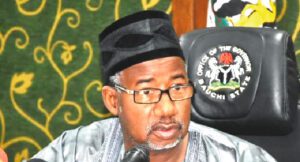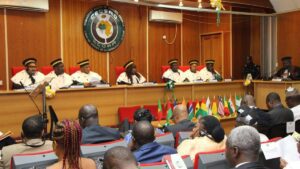AU body applauds Nigeria’s performance in continent’s initiatives for women
The African Union Economic, Social and Cultural Council (AU-ECOSOCC) has recognised Nigeria’s performance in the African Women’s Decade (AWD) initiatives to advance African women’s rights.
Dr Tunji Asaolu, Nigeria’s Representative at the AU-ECOSOCC Third Permanent General Assembly,gave the commendation in his address at the inaugural ceremony of the new women decade project in Abuja.
The event was jointly organised by the Federal Ministry of Women Affairs and AU-ECOSOCC, in partnership with Dr Rhoda Makinde Initiative (DROMI), an NGO.
Report says that the AU launched the AWD in 2010.
Asaolu said, “the AU-ECOSOCC recognizes Nigeria’s performance in previous two decades. That is the Year 2000 to 2010: African Union’s Decade of Gender Equality and Grassroots Mobilisation and Year 2011 to 2020: African Union’s Decade of Women Engagement and Empowerment.
“While we appreciate the efforts of the Nigeria government in the roles it played so far, more needs to be done, hence, necessitating the need for the domestication of the New Decade 2020 to 2030”.
He further said that the council would work closely with state governments and local governments across the federation, as well as private sector and international partners to achieve targets.
Also speaking, the Minister of Women Affairs, Dame Pauline Tallen, commended the new women’s decade policy initiative to be apt, on tackling issues that affect women and girls.
She recalled that the AU Heads of State/Government had at its 33rd Summit held in February, 2020 in Ethiopia declared 2020- 2030 as new decade for women, having implemented 2010 to 2020 as first women decade.
She said the first women decade 2010 to 2020, was a grassroots approach to gender equality and women’s empowerment, and a very important decade for the women of this continent.
“It is a critical time to advance gender equality, by accelerating the implementation of agreed global and regional commitments, particularly that of Dhakar gender and AU decisions on gender equality and women empowerment.
“The African women decade had ten things which were implemented on an annual basis through the financial support of the find for African women.
”This new decade declaration of year 2020 to 2030 on women’s financial and economic inclusion inaugurated today is to make significant progress in improving livelihood of millions of Nigerian women and young girls,” Tallen said.
Meanwhile, Dr Rhoda Makinde, Executive Director of DROMI, expressed appreciation to the Federal Government and the AU-ECOSOCC for their support for women empowerment.
“Today we celebrate the fact that government has realised the potential of women in economic development of nations and saw it fit to implement this project.
“Therefore, we are slowly but surely winning the race against poverty, ignorance and gender inequality,” Makinde said.
She disclosed that the ministry, AU body and her organisation were in partnership to actualize and implement the new decade, as working instrument to achieve targets in Nigeria.
Gov. Aminu Waziri Tambuwal of Sokoto State and Makinde were decorated as Ambassadors to drive the new women decade initiative.
ECOSOCC is an advisory body of the AU and was set up to give civil society organisations a voice within institutions and the decision-making processes of the AU.
Report gathered says that the AU declared 2020 to 2030 as the new Decade of Women’s Financial and Economic Inclusion.
The decade, the union said is of great importance for the African women and young girls to build the momentum and consolidate the gains realised over the years in its efforts to close the existing gender gaps.
The AU said that inequality and poverty are intertwined and therefore the decade’ focus is on building strategies around catalysing and breaking that cycle that has held women and girls back for many decades.
In terms of economic inclusion, the AU said, the declaration is particularly timely as women account for 70 per cent of the informal cross border traders and at a time the continent is scheduled to kick off trading under the African Continental Free Trade area (AFCFTA).
Among the benefits of this common market is the reduction of both tariff and non-tariff barriers and implementing the simplified trade regimes, which will make it more affordable for informal traders to operate through formal channels.




